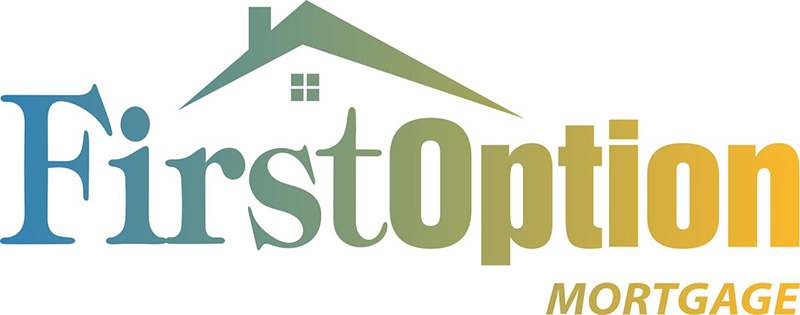Although it may appear self-evident that you should continue paying your bills during the period between mortgage pre-approval and the closing date, some individuals get caught up in the excitement of home shopping and disregard their finances.
Once you have your pre-approval from First Option Mortgage, it is essential not to lose sight of your finances while you go through the home shopping process. To ensure that no surprises pop up at closing, you need to be fairly strict with your finances.
Here are nine common mistakes to avoid after receiving a mortgage pre-approval.
1. Applying For New Credit
Every time you apply for credit, it generates an inquiry on your credit report. Multiple inquiries within a short period of time can lower your credit score and increase your debt-to-income ratio, which is one of the critical factors in mortgage underwriting. A high debt-to-income ratio may cause your lender to reconsider your pre-approval or potentially deny your mortgage application.
Applying for new credit after receiving a pre-approval can make your credit history look unstable. Mortgage lenders typically prefer borrowers with a stable credit history, as it reflects their ability to manage their finances responsibly. If you apply for new credit during this period, it may raise concerns about your financial stability, leading the lender to become less confident in your ability to pay your mortgage payments on time.
2. Big Purchases
If you buy furniture or appliances with credit after getting pre-approved for a mortgage, the payments for those purchases will need to be factored into your debt-to-income ratio. This increase in debt could negatively impact your mortgage approval or result in a delayed settlement.
Additionally, if you choose to pay cash for furniture or appliances, you may have fewer assets available to use for a down payment or as cash reserves. This could also impact your mortgage approval, as lenders typically like to see borrowers with adequate cash reserves and a sizable down payment.
It’s essential to avoid making big purchases or taking on new credit during the mortgage process to maintain a stable debt-to-income ratio and ensure that you have enough assets to satisfy your lender’s requirements. By doing so, you can increase your chances of a smooth settlement process and successful mortgage approval.
3. Paying Off All Your Debt
When a lender pre-approves you for a mortgage, they evaluate your creditworthiness based on your credit score, debt-to-income ratio, and other financial factors. If you pay off all of your debt after being pre-approved, it could impact your credit score, as paying off debt can cause a temporary dip in your credit score.
Furthermore, paying off your debt could also impact your debt-to-income ratio, which is a critical factor in the mortgage approval process. If your debt-to-income ratio changes significantly after being pre-approved, your lender may need to re-evaluate your application, which could lead to a delay or even a denial of the mortgage.
In general, it’s best to avoid making significant changes to your financial situation during the mortgage application process. If you have concerns about your debt or credit score, it’s advisable to discuss them with your lender before making any major financial moves.
4. Co-signing Loans
When you co-sign a loan, you are agreeing to take on responsibility for the debt if the primary borrower cannot make payments. This means that the co-signed loan will appear on your credit report and factor into your debt-to-income ratio, potentially increasing your debt load and reducing your ability to qualify for a mortgage.
Additionally, co-signing a loan also poses a risk to your credit score if the primary borrower defaults on the loan. Even if you are not making payments on the co-signed loan, any missed or late payments will still appear on your credit report and can negatively impact your credit score.
Sorry to Interrupt…
As you read through this information, please feel free to reach out to us at any time – no matter where you are in your home buying journey. Our expert mortgage lenders here at First Option Mortgage can give you the most accurate information and help you find the best loan type for you.
Or continue reading down below!
5. Changing Jobs
Changing jobs after getting pre-approved for a loan can negatively affect your mortgage application because it can alter your income and employment history, which are important factors in determining your creditworthiness.
Lenders prefer borrowers who have a stable employment history and a steady income stream, which provides assurance that the borrower can repay the loan on time.
If you change jobs, lenders may view it as a risky move, especially if you’re in a probationary period or the new job pays less. This can delay or even result in the cancellation of your mortgage application.
6. Ignoring Lender Requests
Ignoring lender requests after getting pre-approved for a mortgage can lead to a delay or even a denial of your loan application.
Lenders may request additional documentation or information to verify your income, employment, and financial history during the mortgage application process.
If you ignore these requests or fail to provide the requested information in a timely manner, it may raise concerns about your creditworthiness or ability to repay the loan. This can lead to delays in the processing of your application, or even a denial of your loan.
It’s important to be responsive to your lender’s requests and provide any requested information promptly to avoid any issues.
7. Falling Behind on Bills
This one may seem like a no-brainer, but it’s still one that people can take for granted during such an exciting time. Falling behind on your bills after being pre-approved for a mortgage can negatively impact your credit score and your ability to secure a loan.
Your credit score is a critical factor in determining your mortgage interest rate and whether you qualify for a loan at all. Late payments can stay on your credit report for up to seven years and can lower your credit score, making it more difficult to obtain a mortgage.
Additionally, a lender may check your credit score and financial history again just before closing, and if they find that you have fallen behind on your bills, it may lead to a delay or even the cancellation of your loan.
8. Losing Track of Your Deposits
After being pre-approved for a mortgage, you should avoid losing track of your deposits because it can complicate the verification of your assets.
Lenders require borrowers to verify their assets to ensure they have enough money for a down payment and closing costs. Any large deposits that cannot be explained or documented could raise red flags and delay or even jeopardize the mortgage approval process. It is important to keep track of your deposits and have documentation to support their sources.
9. Forgetting Seller Concessions
After getting pre-approved for a mortgage, you may receive seller concessions from the home seller, such as paying for closing costs or providing credit at closing.
However, it’s important not to forget about these concessions during the home-buying process. If you forget about the concessions and fail to account for them in your budget, you may end up in a situation where you don’t have enough funds to close on the home.
This could delay or even cancel the settlement, causing unnecessary stress and potentially costing you money in penalties or lost opportunities.
If you have questions about the mortgage process or are looking to get the process started, contact First Option Mortgage of Indianapolis today!









